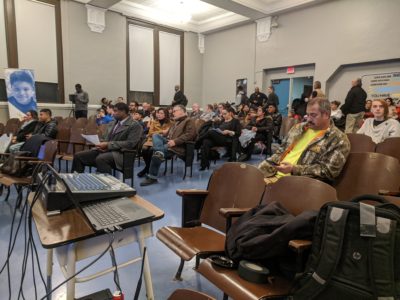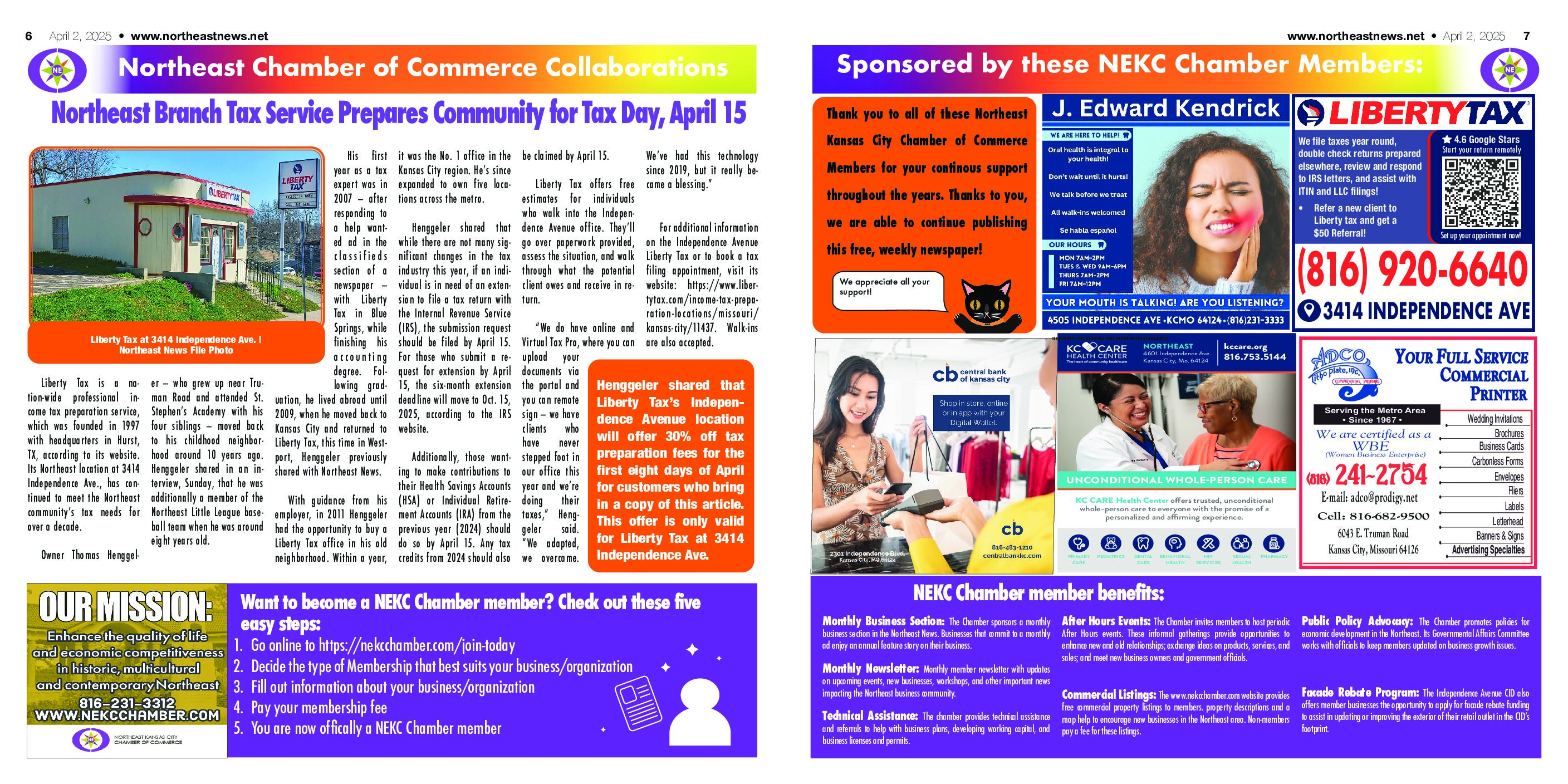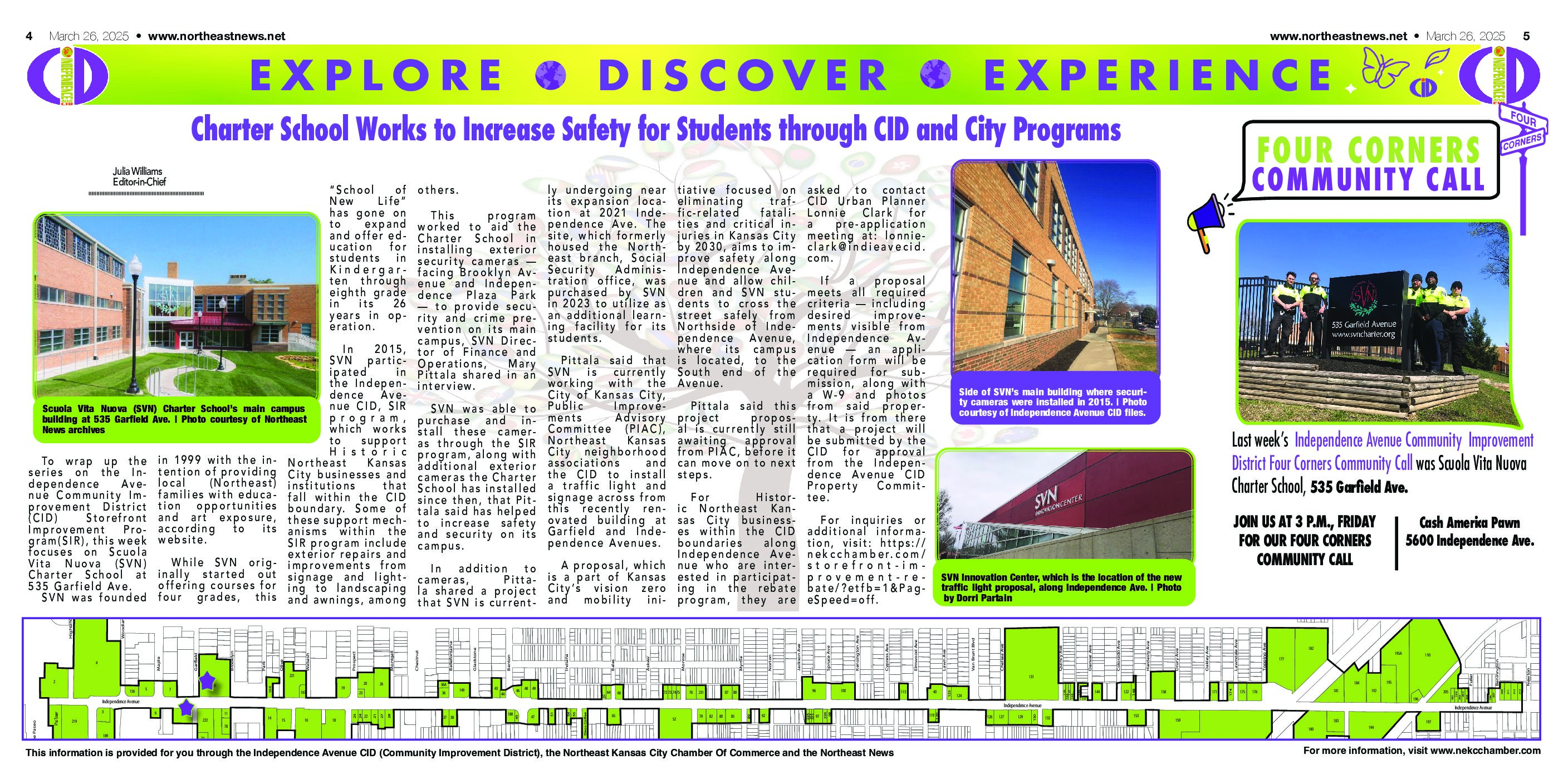
Northeast News
Wednesday, December 11, the Kansas City Public School Board met at James Elementary School where board president Patti Mansur issued harsh words for the city of KCMO’s TIF policy; specifically a $44M Waddell & Reed deal.
“It’s important that our constituents understand that we are making an urgent request to our elected officials for fairness and transparency on how the city approaches tax incentives,” said Mansur.
Board member Manny Abarca motioned a resolution, Jennifer Wolfsie seconded, and the board passed it unanimously.
As a follow-up, Ray Weikal, with the KCPS Communications and Community Engagement Department, released this statement today:
“We’ve consistently talked about meaningful tax incentive reform in Kansas City. But today, Waddell and Reed, with support from Kansas City Mayor Quinton Lucas, is asking the City Council to approve $44 million in local incentives, on top of $62 million in state incentives. If approved, Kansas City Public Schools and the charter schools will forgo $15 million in revenues. This request is simply too much for a project lacking financial transparency and accountability. KCPS has sought a compromise by limiting the abatement period to 10 years, reducing Waddell and Reed’s overall request by $10 million, from $106 million to $96 million. This $10 million could be used for additional pre-K classrooms, counselors for trauma support, expansion of our Early College Academy and other academic supports. Waddell and Reed has rejected this compromise. We are now asking the City Council to re-evaluate the proposal and negotiate a more beneficial package for Kansas City’s children.”
**********
Resolution by the KCPS Board of Directors:
December 12, 2019
It is important to our Board of Education to publicly address a current economic development incentive being considered in the city of Kansas City.
When economic development incentives are used appropriately, the city, school district and other taxing jurisdictions forgo a portion of their future revenues in order to achieve a public benefit. This can include providing affordable housing, job creation, addressing food deserts, supporting small businesses, revitalizing neighborhoods or commercial areas. When used appropriately, schools and school districts may forgo some revenues in the short term to support projects that will stimulate our tax base so that we may gain sufficient resources to provide our students with the facilities, teaching staff, and supports they need to succeed.
Sometimes the use of economic development incentives can have ramifications that impact our ability to realize revenue, which takes away from our students. Unfortunately, use of incentives within Kansas City is so extensive that KCPS has one of the highest levels of abated/redirected revenues of school districts across the nation – 17th highest in the nation, according to 2018 analysis. In addition, there have been concerns regarding the lack of transparency and accountability for some projects.
On Thursday afternoon, the City Council will consider an incentive proposal that causes concern. Waddell and Reed, a company based in Shawnee Mission, Kansas, is seeking $62 million in state incentives and $44 million in local incentives to relocate its headquarters to downtown Kansas City.
While KCPS sees value in additional development and growing the employment base in Kansas City, we have concerns regarding the substantial level of local incentives, specifically, how much future property tax revenue schools, libraries, and other property tax-supported agencies are being asked to forgo in order to construct a new headquarters for Waddell and Reed.
Under the current proposal, Waddell and Reed would receive a 75% abatement of property taxes for 15 years, at a value of $28 million. At the proposed 75% abatement level, public schools in Kansas City would forgo more than $900,000 per year and almost $15 million in revenue over the 15 year-period – resources that would not be available to enhance educational opportunities for our city’s students. We have asked our elected leaders to take the time needed to review the project scope and secure a compromise that doesn’t undermine resources for Kansas City children.
The KCPS School Board of Directors has a fiduciary responsibility to our students, families and community and we believe it is important our constituents understand that we are seeking fairness and transparency in how the city approaches tax incentives. The impact of incentive packages like this one affects public education in Kansas City. We are calling on Kansas City leaders to take heed of the effect these incentives have on education and the overall economic health of our community.
NOTE: These comments serve as a resolution from the KCPS Board of Directors – solidified from a unanimous vote of support from the Board members at their December 11, 2019, regular business meeting.


















